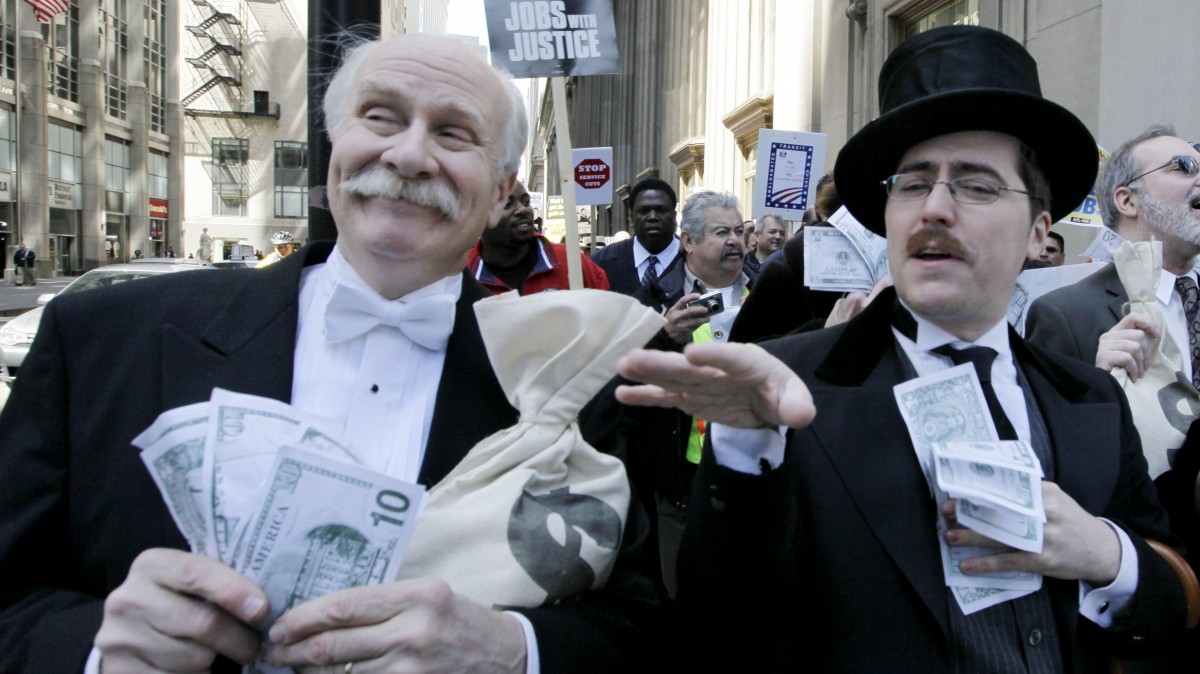By Kitty Testa
2018 has been a dismal year for free speech. In fact it’s been like a good old-fashioned purge. One of the latest victims is Carl Benjamin, aka Sargon of Akkad, whose Patreon account was terminated earlier this month for ironically using a prohibited word in a video on another channel that was not advertised on Patreon. Benjamin’s removal from the platform prompted one of Patreon’s top users to delete his account. Sam Harris, who had almost 9,000 paying patrons, announced on Twitter that he would be closing his Patreon Account.
— Sam Harris (@SamHarrisOrg) December 17, 2018
Patrons have also been leaving the platform in protest, and that has reduced the income of content creators and thus the company’s 5% share of donations. At least in one instance, we know that Patreon has reached out to affected members to soothe their concerns. Matt Christiansen has nearly 167,000 YouTube subscribers and lost 39% of his funding in the exodus. He posted a video revealing the content of a telephone conversation with a representative of Patreon, Jacqueline Hart.
Christiansen emphasizes three points he learned from the telephone call:
- Patreon is not a free speech platform
- Patreon is not a free market
- Rules enforcement on Patreon is subjective
But something else caught my attention: pressure from payment processors.
Christiansen also posted a link to a transcript of the telephone call, and Hart did refer to pressure from payment processors. Here are some excerpts of Hart’s comments:
The problem is is patreon takes payments. And while we are obviously supportive of the first amendment, there are other things that we have to consider.
But secondly as a membership platform, payment processing is one of the core value propositions that we have. Payment processing depends on our ability to use the global payment network, and they have rules for what they will process.
We’re not visa and mastercard ourselves – we can’t just make the rules. That’s what I’m saying – there is an extra layer there.
Hart implied that Visa and Mastercard, or financial services in general, have rules about what is allowed to be funded on Patreon. Patreon took the same stance after axing Robert Spencer‘s account on their platform in August.
Hi Robert, we emailed you earlier today which explained that unfortunately Mastercard required us to remove your account. You replied to us but if you have further questions we're happy to keep emailing.
— Patreon (@Patreon) August 15, 2018
Some content creators have moved their pages to Subscribestar. That platform was deplatformed by payment processing services in mid-December.
I reached out to Christiansen via email and asked him what he thought of bankers being the arbiters of what is acceptable speech. He indicated that he supports a business’s right to refuse service to anyone for any reason, but added:
The problem with what’s going on currently with online deplatforming is certain ‘wrongthinkers’ aren’t just being kicked off websites like Patreon, but competitors are also being stifled. I support a right to refuse service – I do not support meddling in someone else’s business when they are refused service and move elsewhere.
If the bankers are now the speech police, don’t we all deserve to know who is making these speech restricting laws? If the idea of the banking industry policing behavior seems ludicrous to you, think again. Banks are effectively an arm of law enforcement.
It is no joke to be blacklisted from financial services. That is how economic sanctions are implemented globally. We mostly think of money in a purely utilitarian way, as a store of value, a medium of exchange and a unit of account. Yet there is a fourth use of money: as a system of control. Andreas Antonopoulos, author of The Internet of Money, explains how the international banking and financial services apparatus exerts its power over all other social structures.
[yotuwp type=”videos” id=”FyK4P7ZdOK8″ ]
In 2010, payment processors including Mastercard, Visa, PayPal and Moneybookers cut WikiLeaks off from receiving donations. This was done at the behest of the U.S. government. Money is a system of control.
There isn’t really a free market in financial services. Yes, you can go get this credit card or that one, or open an account at Chase Bank or Bank of America, but they are all connected to the same banking system, which includes central banks all over the world. Any organization on the planet could be frozen out of the banking system. Even powerful, wealthy organizations like the Catholic Church could be cut off if those in control decided to do so.
Many countries that have been on the receiving end of international economic sanctions have looked for workaround solutions. Prior to his assassination in 2011, Muammar Gaddafi was stockpiling gold and supported a pan-African, gold-backed currency. Leaked Hillary Clinton emails suggest that this was one of the reasons the U.S. and E.U. enabled the overthrow of the Libyan leader. This reality drives many people to support the idea of bitcoin and other cryptocurrencies which are permissionless and censorship-resistant. We are all under control of the financial system.
Many make the argument that social media platforms are private companies and no one has a right to their digital soapboxes. While the status of social media companies and their relationship to government make this debatable, this is simply not true for banks. Banks are highly regulated, and serve as watchdogs for possible financial crimes. They can’t just do as they please, and every credit card transaction is affiliated with a bank. Mastercard could not decide on a whim that anyone whose first name is Martha shall not be issued a credit card. And yet despite being highly regulated by federal and state government, the suggestion here is that banks decide who will be allowed to use their services based on speech.
It’s difficult to imagine that bankers themselves have a vested interest in policing speech. The pressure to regulate online content must be coming from elsewhere.
And it’s only going to get worse. Despite vague defenses that users are quashed due to violations of terms of service, and broad application of the indefinable concept of “hate speech,” there is a noticeable pattern among the users jettisoned from various platforms: They tend to challenge official narratives. Their influence is creating pockets of dissent. When dealing with a pocket of dissent here and there, the establishment voices dismiss influencers as conspiracy theorists. This is becoming less effective, and now deplatforming combined with expulsion from financial services is the big stick dissenters now face.
When Twitter, Facebook, YouTube, Apple and Spotify simultaneously deplatformed Alex Jones and InfoWars, many cheered. Many did not, warning that Alex Jones was just the beginning. Self-described rogue journalist, Caitlin Johnstone took a stand on the side of freedom of speech, and warned that Jones was deplatformed for being anti-establishment, and this would happen to others, even those on the Left.
This is a setup. Hit the soft target so your oligarch-friendly censorship doesn’t look like what it is, then once you’ve manufactured consent, go on to shut down the rest of dissenting media bit by bit.
Jones’ social media purge was in August. In September, payment processor PayPal banned InfoWars from using its service because they didn’t feel that Jones’ websites ran “counter to our core value of inclusion.”
Can you imagine if your banker read your “End the Fed” tweets and decided you don’t share the bank’s values and closed your checking account?
That financial services are using their power to control speech is alarming, but who, exactly, is doing the targeting? Is it the result of pressure from outrage mobs? The anti-First Amendment Southern Poverty Law Center? Is it coming from sources inside the government? We simply don’t know the true source of the censorship, only that they are powerful enough to influence PayPal, Stripe, Visa and Mastercard. As Christiansen notes,
What we’re watching is not just progressive activists and business interests saying ‘wrongthinkers’ don’t have a home on their own platforms, they’re saying those ‘wrongthinkers’ don’t have a home on any platforms.
Jordan Peterson and Dave Rubin, who both have been affected by their supporters leaving Patreon, are looking to develop an alternative site for content creators. It would not be surprising if payment processors refused to work with this new platform, just as they parted ways with SubscribeStar. Even if Peterson and Rubin do find a payment processing partner, who’s to say they won’t pull the rug out after launch because someone found an old VHS video from 35 years ago of Peterson saying something now deemed completely inappropriate?
Powerful, entrenched groups are grappling with conditions they perhaps did not foresee. The influence of corporate media, and thus narrative control, is waning. In its place is a cacophony of voices, many willing to take the political and financial establishment head on. And people are listening. It is a free market of information and opinion, and listeners are willing to financially support the voices they trust.
Yet we are trapped in a financial system that is designed to control us. It is an imminent threat to our liberty. The only true alternative we have to this system is bitcoin and other cryptocurrencies. They are currently volatile and more difficult to use, and accepted too few places to be practical. But they might be needed in a world where bankers decide what we can and cannot say.





9 comments
generic viagra india
viagra for sale
cialis to buy
cialis buy
real casino
online casino real money us
online gambling
free casino games
generic cialis online
buying cialis online safely
casino real money
best online casino usa
best casino online
online casino
… [Trackback]
[…] Information on that Topic: thelibertarianrepublic.com/patreon-purge-bankers-are-the-global-speech-police/ […]
… [Trackback]
[…] Read More Info here on that Topic: thelibertarianrepublic.com/patreon-purge-bankers-are-the-global-speech-police/ […]